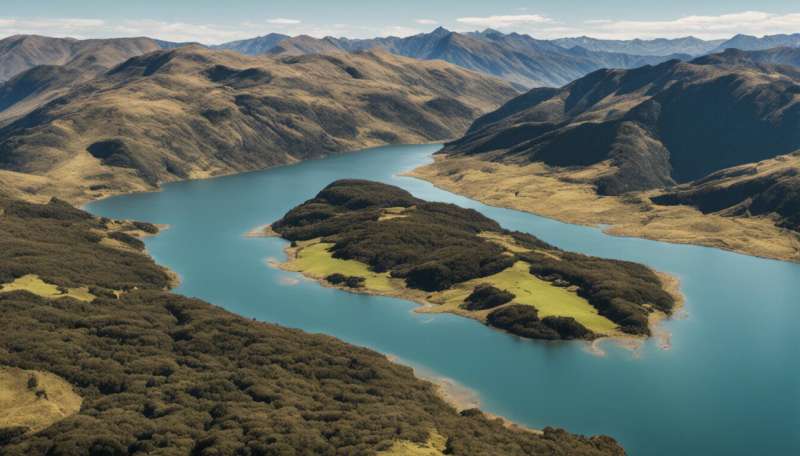New Zealand government ignores expert advice in its plan to improve water quality in rivers and lakes

New Zealand's government has been praised for listening to health experts in its pandemic response, but when it comes to dealing with pollution of the country's waterways, scientific advice seems less important.
Today, the government released a long-awaited to address freshwater pollution. The new rules include higher standards around cleanliness of swimming spots, set controls for some farming practices and how much synthetic fertiliser is used, and require mandatory and enforceable farm environment plans.
But the package is flawed. It does not include any measurable limits on key nutrients (such as nitrogen and phosphorus) and the rules' implementation is left to regional authorities. Over the 30 years they have been managing the environment, the health of lakes and rivers has .
For full disclosure, I was part of the 18-person that made the recommendations. Despite more than a year of consultation and evidence-based science, the government has deferred or ignored our advice on introducing measurable limits on nitrogen and phosphorus.
Waterways in decline
The declining state of rivers, lakes and wetlands was the most important environmental issue for 80% of New Zealanders in a . It was also an in 2017, so there was a clear mandate for significant change.
But despite years of work from government appointed expert panels, including the technical advisory group I was part of, the Māori freshwater forum and the Freshwater Leaders groups, crucial advice was ignored.
The technical advisory group, supported by , was unequivocal that specific nitrogen and phosphorus limits are necessary to protect the quality of people's drinking water and the ecological health of waterways.
The proposed nutrient limits were key to achieving real change, and far from being extreme, would have brought New Zealand . For example, in China, the limit for nitrogen in rivers is – the same limit as our technical advisory group recommended. In New Zealand, (which make up half of the country's waterways, if measured by length) now exceed .
Instead, Minister for the Environment David Parker decided to postpone this discussion by another year—meaning New Zealand will continue to lag other nations in having clear, enforceable nutrient limits.
This delay will inevitably result in a continued decline of water quality, with a corresponding decline in a suite of ecological, , and values a healthy environment could support.

Capping use of nitrogen fertiliser
The other main policy the expert panels pushed for was a cap on the use of nitrogen fertiliser. This was indeed part of the announcement, which is a positive and important step forward. But the cap is set at 190kg per hectare per year, which is too high. This is like telling someone they should reduce smoking from three to two and a half packets a day to be healthier.
I believe that the tightening of environmental standards for freshwater would threaten New Zealand's economic recovery are exaggerated. They also ignore the fact clean water and a healthy environment provide the foundation for our current and future economic well-being.
And they fly in the face of modelling by the Ministry for the Environment, which shows implementation of freshwater reforms would .
Excess nitrogen is not just an issue for ecosystem health. Nitrate (which forms when nitrogen combines with oxygen) in drinking water has been , which is in many parts of New Zealand.
The New Zealand College of Public Health Medicine and the both made calling for a nitrate limit in rivers and aquifers to protect people's health—at the same level the technical advisory group recommended to protect ecosystems.
Our dependence on synthetic nitrogen fertiliser is unsustainable, and it is adding to New Zealand's greenhouse gas footprint through nitrous oxide emissions. There is farmers can make more profit by reducing their use of artificial fertilisers.
Continued use will only further degrade soils across productive landscapes and reduce the farming sector's resilience in a changing climate.
The irony is that for a century, New Zealand produced milk without synthetic nitrogen fertiliser. Instead, farmers grew clover which converts nitrogen from the air. If we want to strive for better water quality for future generations, we need to front up to the unsustainable use of artificial fertiliser and seek more regenerative farming practices.
Provided by The Conversation
This article is republished from under a Creative Commons license. Read the .![]()




















